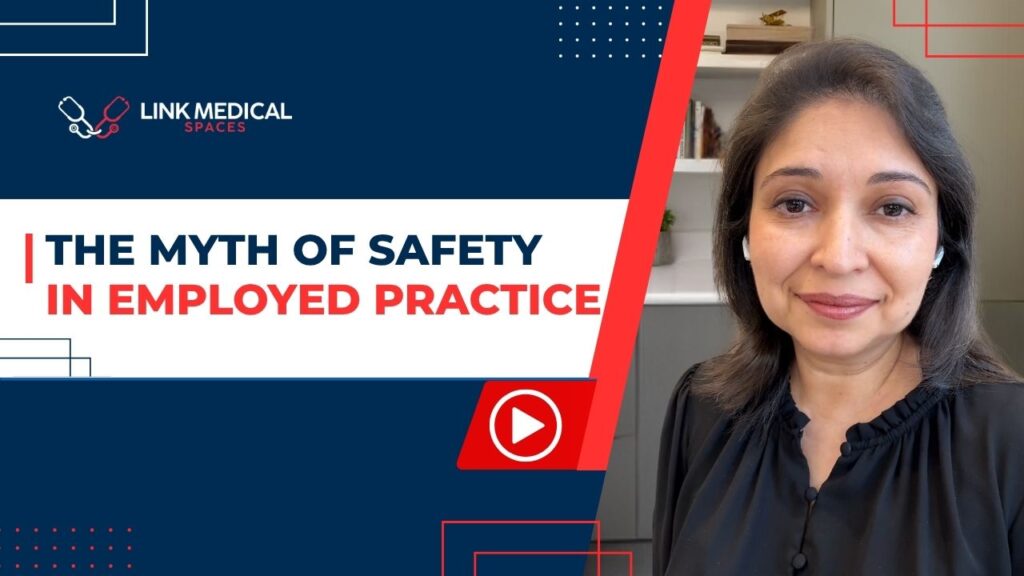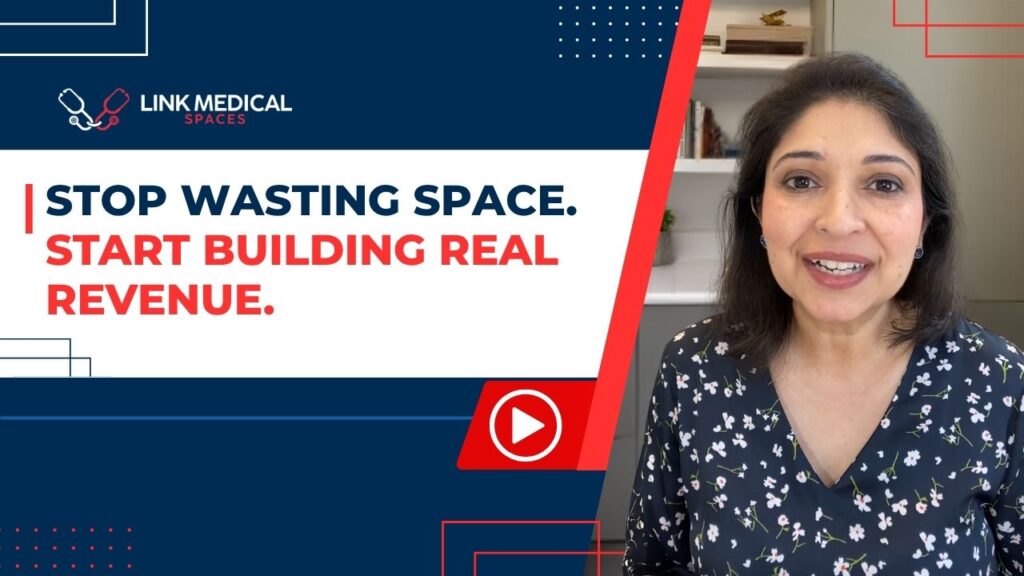Leasing a medical office space is a major financial and operational commitment for any healthcare provider. The right lease can set your practice up for success, while a bad lease can lead to unexpected costs, legal headaches, and long-term limitations.
Before you sign on the dotted line, here’s what you must know to protect your practice and ensure a lease agreement that aligns with your goals.
Key Lease Terms to Watch Out For
Medical office leases are not like standard commercial leases. They come with unique considerations due to zoning, compliance regulations, and the specialized nature of healthcare operations. Here are the key factors to evaluate before finalizing your lease.
Lease Term & Renewal Options
How long are you committing to this space?
- Shorter lease terms (3-5 years) provide flexibility but may come with higher rent and fewer incentives from landlords.
- Longer lease terms (7-10+ years) offer stability and the potential for better lease terms and tenant improvement allowances but can be risky if your practice needs change.
Key Questions to Ask:
- Is there an option to renew at a pre-negotiated rate?
- Can you exit early if needed, and what are the penalties?
- If your practice grows, can you expand within the building?
Pro Tip: If you’re unsure about the long-term viability of a location, negotiate an early termination clause or request a first right of refusal on additional space.
Rent & Additional Expenses
Your lease cost goes beyond just base rent. Many leases include additional expenses that can add up quickly.
Types of Medical Office Leases:
- Gross Lease (Full-Service Lease) – You pay a fixed rent, and the landlord covers all or most expenses (utilities, maintenance, insurance, and taxes).
- Modified Gross Lease – You pay base rent + a proportionate share of certain expenses (e.g., utilities, maintenance).
- Triple Net (NNN) Lease – You pay base rent + property taxes, insurance, and maintenance costs—which can fluctuate year to year.
Key Questions to Ask:
- What’s included in the base rent?
- Are there annual rent increases (escalation clauses)?
- What additional expenses (CAM fees, insurance, taxes) are passed on to tenants?
Pro Tip: If you’re in a multi-tenant medical building, verify that your rent aligns with market rates and that you’re not covering costs for services that don’t benefit your practice.
Permitted Use & Exclusivity Clauses
Your lease should clearly state that you are permitted to operate your specific type of medical practice in the space.
Watch Out For:
- Restrictions on services – Some leases limit certain medical treatments or procedures (e.g., imaging, lab work, surgery) due to zoning laws or landlord policies.
- Competing practices – Without an exclusivity clause, your landlord can lease space to a direct competitor in the same building.
Key Questions to Ask:
- Does the lease allow you to provide all the services your practice offers?
- Can you negotiate an exclusivity clause to prevent competitors from moving in?
Pro Tip: If the landlord is unwilling to offer exclusivity, negotiate for a first right of refusal on any future vacancies to prevent unwanted competition.
Maintenance & Repairs
Who is responsible for maintaining the space?
- Structural repairs (roof, foundation, HVAC, plumbing) are typically the landlord’s responsibility.
- Interior upkeep (fixtures, equipment, minor repairs) is usually the tenant’s responsibility.
- In Triple Net (NNN) leases, tenants may be responsible for some structural elements, so review these clauses carefully.
Key Questions to Ask:
- Who handles HVAC maintenance and replacements?
- Are there hidden costs for property upkeep?
- If the office requires repairs, is there a timeframe for the landlord to fix them?
Pro Tip: Get maintenance responsibilities in writing to avoid disputes over repairs later.
Healthcare Compliance Requirements
Medical offices must comply with specific laws and regulations, including:
- Zoning Laws – The space must be zoned for medical use (not all commercial spaces are).
- HIPAA Regulations – The layout must support patient privacy and data security.
- ADA Compliance – The office must be accessible to patients with disabilities (ramps, elevators, restrooms).
- OSHA Standards – If handling biohazardous materials, the space must meet safety guidelines.
Key Questions to Ask:
- Does the space already meet medical zoning and compliance standards?
- If not, who is responsible for bringing it up to code?
Pro Tip: If the space needs modifications to meet compliance, negotiate who pays for these upgrades before signing the lease.
Tenant Improvements & Build-Outs
Most medical offices require some modifications before move-in, whether it’s adding exam rooms, upgrading HVAC systems, or reinforcing floors for imaging equipment.
- Tenant Improvement (TI) Allowances – Landlords may cover part of the build-out costs (e.g., $20-$50 per square foot).
- Who Owns the Improvements? – In some leases, permanent upgrades become landlord property when you leave.
Key Questions to Ask:
- How much will the landlord contribute toward renovations?
- Who manages the construction? (Tenant or landlord?)
- Do you retain ownership of improvements if you move?
Pro Tip: Get landlord contributions in writing and clarify who controls the build-out process.
Assignment & Subletting Rights
What happens if you need to relocate or sell your practice?
- Assignment Clause – Allows you to transfer the lease to another medical provider if you sell your practice.
- Subletting Clause – Lets you rent out part or all of your space to another tenant.
Key Questions to Ask:
- Can you sublease if needed?
- Can you assign the lease if you sell your practice?
- Does the landlord have approval rights over subtenants?
Pro Tip: A strict no-subletting policy can leave you stuck paying for unused space. Negotiate flexibility in case your business needs change.
Termination Clauses & Exit Strategies
Unexpected situations (illness, relocation, business changes) may require you to exit the lease early.
Key Exit Considerations:
- Early Termination Clause – Specifies the conditions under which you can break the lease (and any penalties).
- Relocation Clause – Allows the landlord to move your practice within the same building—make sure you have approval rights.
- Death & Disability Clause – Some leases release a tenant from obligations if the provider can no longer practice due to disability or death.
Key Questions to Ask:
- What are the penalties for breaking the lease early?
- Can the landlord relocate your practice without consent?
- Does the lease offer a death or disability clause?
Pro Tip: If the lease has severe penalties for early termination, consider negotiating a buyout option to minimize financial risk.
Final Thoughts: Read the Fine Print!
Signing a lease without understanding the hidden costs and obligations can be a costly mistake. A well-structured lease protects your practice and allows for long-term growth and stability.
- Negotiate key terms before signing
- Consult with a healthcare real estate expert
- Plan for future flexibility
Taking the time to review all lease provisions carefully can save thousands of dollars and prevent unnecessary legal issues down the road.
For more insights into medical office leasing and subleasing, stay informed with Link Medical Spaces—your trusted resource for navigating healthcare real estate.














